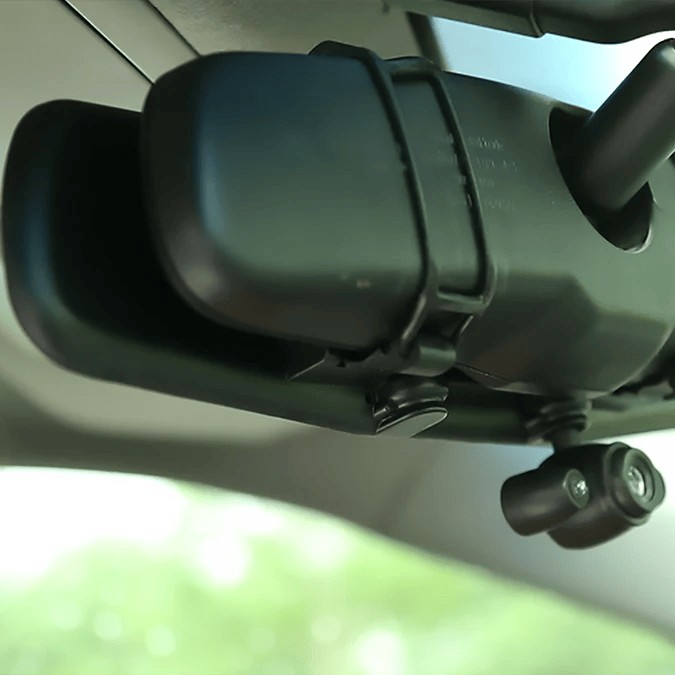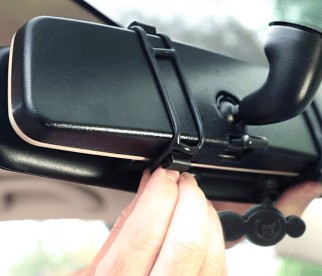When choosing a dash cam for your vehicle, it’s important to consider several factors to ensure it fits your specific needs. A car dash cam is not only a valuable tool for documenting incidents on the road, but it can also provide added peace of mind. The right camera will offer clear video quality, durability, and the features you need. In this guide, we’ll explore the key elements to help you make an informed decision when selecting the best dash cam for your car.
Understand the Purpose of Your Dash Cam
Before purchasing a car dash cam, define its primary purpose. Are you looking for a basic device to capture traffic incidents or something more advanced with additional features like parking mode and GPS? Mirror dashboard cameras can also provide a more integrated solution, offering features that replace traditional rearview mirrors while providing video recording capabilities. Think about whether you need a camera for everyday use or something more specialized for long trips, Uber driving, or commercial use.
Choose the Right Video Resolution
Video resolution is one of the most important factors to consider when purchasing a dash cam. Higher resolution cameras offer clearer footage, which is essential for identifying license plates, road signs, and other details that could be crucial in an accident. A car dash cam with a 1080p HD resolution is generally sufficient for most users, but you may want to opt for 4K if you need ultra-clear video quality. Mirror dashboard cameras with high-definition capabilities can give you both the benefit of superior video quality and a sleek design.
Consider the Field of View
The field of view (FOV) of your dash cam determines how much of the road the camera can capture. A wider FOV ensures that more of the surroundings are recorded, which can be particularly helpful in busy traffic situations. Car dash cams typically offer a range between 120 to 170 degrees, with the wider FOV providing more comprehensive coverage. However, keep in mind that a too-wide lens might distort the edges of the footage. A balanced field of view is ideal for clear and accurate recording.

Look for Night Vision Capabilities
Driving at night or in low-light conditions can present challenges for standard dash cams. A dash cam with night vision capability can enhance footage quality in these environments. Infrared sensors and special processing algorithms allow for clearer images, even when there is limited light. When choosing between car dash cams, make sure to look for one with good low-light performance if you often drive after dark. Some mirror dashboard cameras even feature built-in night vision to ensure you get the best recording quality at all hours.
Assess Storage Capacity and Loop Recording
Dash cams record video continuously, so they need sufficient storage to capture footage. Most dash cams use microSD cards for storage, with many supporting up to 64GB or 128GB cards. Consider the camera's loop recording function, which overwrites the oldest footage when the memory is full, ensuring uninterrupted recording. When selecting a dash cam, assess how much storage is needed for your driving habits. For long trips or daily use, a car dash cam with a higher storage capacity can ensure you never run out of recording space.
Evaluate Additional Features
Many car dash cams come with a variety of extra features that can enhance your driving experience. Look for models with built-in GPS for location tracking, collision detection to alert you about potential hazards, and Wi-Fi connectivity to quickly share footage. Some mirror dashboard cameras even offer features like automatic activation when the engine starts and parking monitoring while your vehicle is off. Consider which additional features are important to you and match them with the camera’s capabilities before making a final decision.
Weather Resistance and Durability
Your dash cam should be built to withstand various weather conditions, especially if you plan to use it year-round. Harsh temperatures, rain, and humidity can affect a camera's performance over time. Look for a model with an IP rating that indicates its resistance to water and dust. Additionally, choose a car dash cam with a solid build quality that can handle the vibrations and movements of your vehicle without compromising the footage quality. Mirror dashboard cameras often feature durable designs that integrate seamlessly into your car’s environment.
Check for Easy Installation
A dash cam should be easy to install without requiring professional help. Many models are designed for quick setup, with adhesive mounts and simple wiring systems that allow you to place the camera discreetly in your vehicle. If you opt for a mirror dashboard camera, the installation process may be even more straightforward, as it often attaches directly over your rearview mirror. Look for a car dash cam with a user-friendly installation guide or video tutorials, so you can set it up without hassle.
Decide Between Front or Front-and-Rear Dash Cam
Depending on your needs, you may want to consider a front-and-rear dash cam setup. While a single front-facing camera is sufficient for most drivers, installing a rear-facing camera provides added security, especially when reversing or parking. A car dash cam that offers dual-channel recording captures both the front and rear of your vehicle, ensuring complete coverage. Some mirror dashboard cameras come with a second camera that you can mount on your rear windshield to monitor the back of your car.
Review Dash Cam Design and Display
When selecting a dash cam, consider its design and the type of display it offers. Some models feature a screen on the camera itself, while others can be monitored through an app or connected to your car's infotainment system. Mirror dashboard cameras are a popular option because they combine a dash cam with your rearview mirror, giving you a sleek, integrated design without taking up additional space. Think about whether you prefer a visible display or a more discreet setup for your vehicle.

Ensure It Has Good Customer Support
When purchasing a car dash cam, it’s important to choose a brand that offers good customer support. This includes providing warranties, responsive customer service, and easy-to-understand manuals. Look for manufacturers with positive reviews for their after-sales service. Many companies offer online FAQs, troubleshooting guides, and instructional videos to help with any setup or usage questions. A reputable brand will also offer firmware updates to improve your dash cam’s performance over time.
Research Battery Life and Power Options
Battery life is crucial when it comes to the functionality of your dash cam. Some models operate on built-in batteries, while others rely on your car’s power supply. Dash cams powered through the car’s system can ensure continuous recording without worrying about battery life. However, mirror dashboard camera typically have hardwiring options to ensure constant power, even when your engine is off. If you plan to use your dash cam for parking surveillance, choose a model with an extended power option for long-term use.
Read Reviews and User Feedback
Before purchasing any dash cam, it’s always a good idea to read user reviews and feedback. Online reviews can provide valuable insight into the camera’s performance, reliability, and ease of use. Look for real-world experiences from people who have used the product under similar conditions. Additionally, review expert evaluations to get an unbiased opinion on features, image quality, and durability. This can help you make a more informed decision when selecting the right car dash cam for your vehicle.
Frequently Asked Questions
What’s the difference between a car dash cam and a mirror dashboard camera?
A car dash cam is a traditional camera that records footage from the front (or front and rear) of the vehicle. A mirror dashboard camera combines the functionality of a dash cam with a rearview mirror, offering a sleek design and additional features like parking monitoring.
How important is GPS in a dash cam?
GPS can add value to a dash cam by recording the vehicle's location and speed at the time of an incident. This can be crucial in proving your case in accidents or insurance claims.
Can I install a dash cam myself?
Yes, most dash cams are designed for easy installation, with simple mounts and wiring systems. However, mirror dashboard cameras may require more specialized installation, depending on the model and car.



